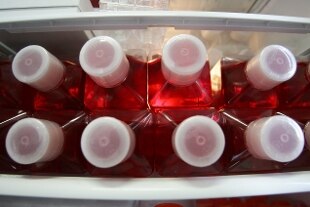- Aids, stem cells stop the HIV virus
- Stem cells repair bronchi, in Milan the first case
- Stem cells: closer new anti-Parkinson therapy. Human tests by the end of 2018
- Stem cells on first 3 patients with multiple sclerosis
- First anti-rejection stem cells obtained. Open to regenerative medicine
Share
19 September 2019A complaint against Cryo-Save and the respective managers of the Swiss private company active in the umbilical cord blood bank sector was presented to the Geneva prosecutor's office by the Swiss health authority, the Office Federal Office of Public Health (FOPH).According to some indications - states a recent release from the FOPH - the Cryo-Save of Plan-les Ouates (Geneva) may have violated the law on transplants (non-fulfillment of notification and cooperation obligations).
According to press sources, about 15 thousand Italian families are involved in the affair.
The Cryo-Save AG company had in 2016 an authorization issued by the FOPH for the import, export and storage of stem cells derived from umbilical cord blood.
Already at the end of August, the FOPH had renounced Cryo-Save AG from the list of authorization holders, after the Plan-les-Ouates branch had been canceled from the commercial register of the Canton of Geneva, after the announcement that the the company had transferred preserved stem cells (according to its own indications) to Poland and the referents were no longer reachable by the authorities, says the FOPH statement.
Investigations were conducted in close collaboration with Swissmedic, the Swiss Agency for Therapeutic Products. The latter revoked Cryo-Save's authorization to use umbilical cord tissues and, at the end of August, initiated criminal proceedings under its jurisdiction for alleged violations of the law on therapeutic agents and the law on transplants. In this regard, Swissmedic conducted several searches in Switzerland in coordination with the FOPH in mid-September.
The communiqué states that the FOPH and Swissmedic have provided contact details to all persons who had deposited blood or umbilical cord tissue at Cryo-Save. In a standard response model to those affected by the incident, available on the FOPH website, the institution states that "we must assume that currently there are no umbilical cord stem cells stored at Plan-les-Ouates" and that they are "in course checks in this regard ".
The letter provides a link to the customers of Cryo-Save AG with instructions on how to find out about their samples. The FOPH states that the customers of Cryo-Save AG have signed a contract for the conservation of stem cells.
This contract constitutes the legal basis and could, for example, contain agreements on the fate of such stem cells in the event that the company goes out of business.
If the contractual agreements were not to be respected, the question would not fall within the competence of transplant law or therapeutic agents (according to Swiss law), but of civil law, which offers customers the possibility to act against the company.

